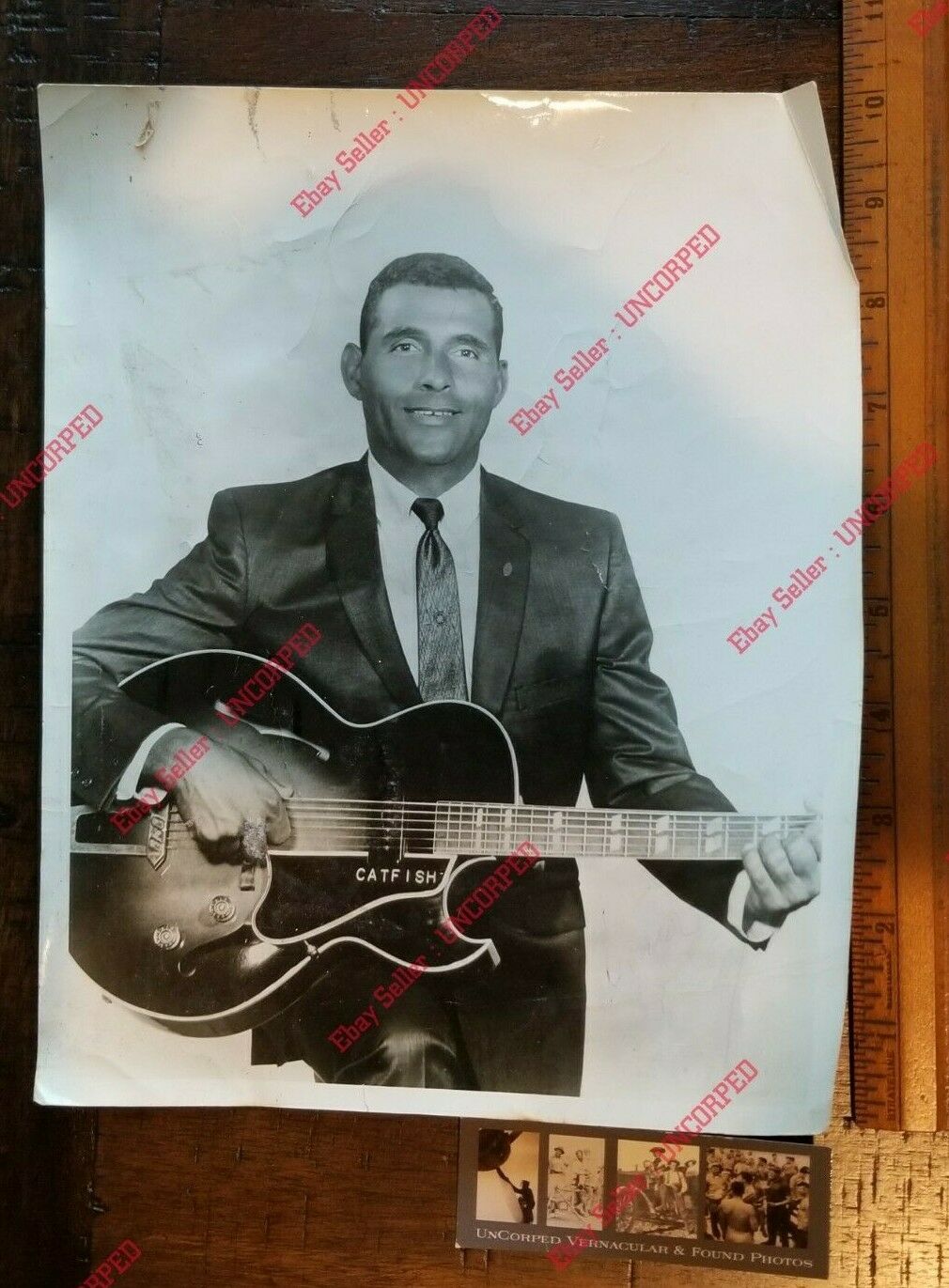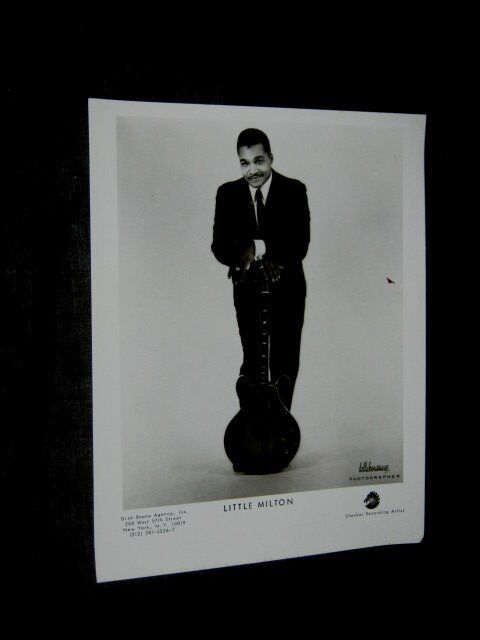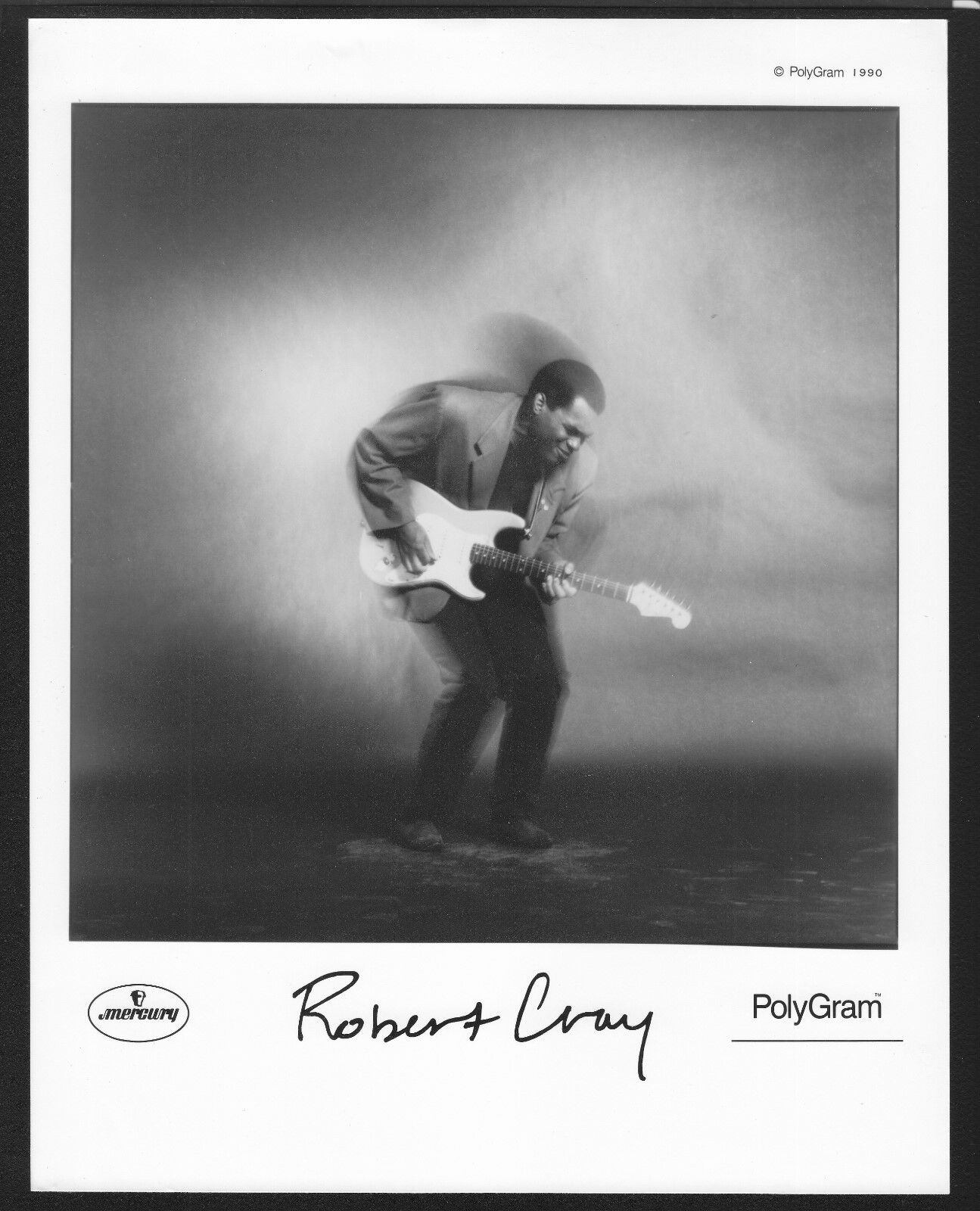-40%
VTG RARE 1960's Signed JUNIOR NORMAN Publicity Photo Black Country Singer ES-175
$ 25.87
- Description
- Size Guide
Description
VTG RARE 1960's Signed JUNIOR NORMAN Black / African American History Country Artist - Gibson ES-175 GuitarThe signature is very faint and I almost missed it had I not looked at the photo under very bright light. His signature is just above "Ball Studio McConnelsville O". Ball Studio was operated by Elwin & Helen Ball from 1948 until 1985.
Credit:
The below is from a paper written by Rick Shriver, Associate Professor of Communication, Ohio University (at the time of the publishing of his paper)
Sylva “Catfish” Norman, Junior. “Junior Norman,” as he was known
professionally, was an African American singer and musician who lived in
Morgan County, Ohio and performed traditional country music and square dance
music across Southeastern Ohio, Northern West Virginia and Western
Pennsylvania from the mid-1960s through the late-1990s.
Junior Norman was arguably the most successful African American country music artist to emerge from the Ohio River Valley in the Twentieth Century. He recorded at least one record in Nashville (“Reflections of a Fool” b/w “A Word or Two to Mary”) and performed regularly on the WWVA-AM “Wheeling Jamboree.” Junior Norman and the Fugitives frequently performed on other radio programs in Marietta and Columbus, Ohio and appeared on television programs in Zanesville, Ohio and Parkersburg, West Virginia. Junior’s band, “The Fugitives,” was at various times composed entirely of African American musicians, several of whom had served time in jail, thus precipitating the name “The Fugitives.” All untrained, but highly skilled musicians, Junior Norman and The Fugitives played to almost exclusively white audiences, in a genre that has traditionally been the restricted domain of white performers. Tragically, Junior Norman’s legacy is in danger of being lost. Only a few copies of his record remain, and are owned by family and close friends.
Photographs are very difficult to find
.
While other regular performers on the Wheeling Jamboree are commemorated in photographs and/or inductance to the Jamboree Hall of Fame, Junior is only occasionally mentioned in the printed programs as a performer at the “Jamboree in the Hills.” In the early 1990s, Junior returned to Nashville to discover the recording studio where he recorded was recently closed. The building was abandoned and strewn about the floors of the building were boxes of tapes, including the masters for his single. Junior retrieved his master tapes and brought them back to Morgan County. The whereabouts of those tapes is not known.
What made Junior Norman’s story truly unique was his racial heritage, the choice of musical genre through which he achieved his success, and the part of the country where he lived and performed. Junior was of tri-racial descent. He did not look African-American, and was often asked about his ethnicity. He regularly answered by saying “I’m a little bit Indian, a little bit Dutch, a little bit colored, but not too much.”
Growing up in predominantly white rural southeastern Ohio, Junior was immersed in Appalachian farm culture. The inescapable presence and influence of the country music genre in this region helped to shape Junior Norman’s musical career, despite the unlikelihood that a colored performer would choose a white musical form. In fact, it is likely that timing and coincidence factored into Junior’s musical choice, as he was refining his style at a time when country music was becoming gentrified.




















